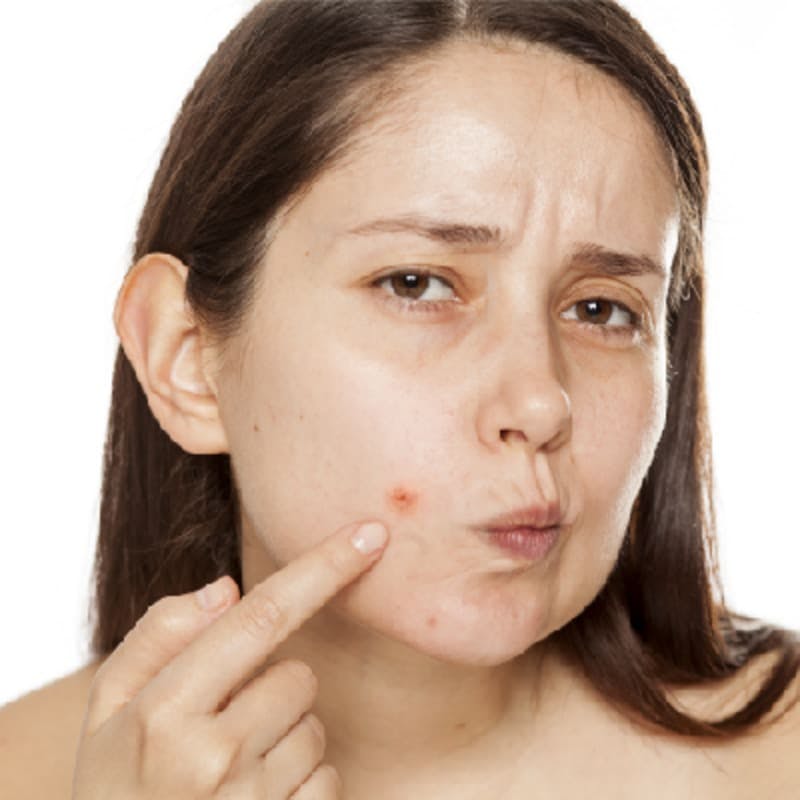More than one out of every two women can expect to develop acne during pregnancy. However, managing this can be tricky. Treatments applied to your skin or swallowed may enter your bloodstream and affect your baby.
Written by Medical Professional
Can be Treated Online
Appointments Available Today
Written by
Dr Farah Gilani
Doctor
Reviewed by
Dr Faiza Khalid
Doctor
Last Updated:
Next Review: Sep 1, 2025
Guide contents
01What to do: acne when pregnant
Articles related to Acne When Pregnant
What to do: acne when pregnant
More than one out of every two women can expect to develop acne during pregnancy. However, managing this can be tricky. Treatments applied to your skin or swallowed may enter your bloodstream and affect your baby.
As such, self-care is often the best place to start. Washing regularly and avoiding irritants are simple steps you can take to manage the condition. If you have developed acne while pregnant, we can help with:
How do I treat acne during pregnancy? And what medications can I take during pregnancy?
This chapter covers
- Do you get acne when pregnant?
- How to treat acne when pregnant
- Pregnancy acne: six all-natural treatments
- How to prevent acne when pregnant
Do you get acne when pregnant?
More than one out of every two pregnant women can expect to develop acne. The primary cause is an overproduction of oil (sebum) because of increased hormone levels in the first trimester. In some cases, it can be severe, but can most often be treated with self-care and medication.
How to treat acne when pregnant
If you have acne during pregnancy, the first step is self-care:
- Wash the affected areas with a gentle cleanser. Use your hands to wash twice a day with mild soap and lukewarm water. Avoid excessive washing and scrubbing as this can irritate the skin.
- Don’t pick or squeeze blemishes. This can cause infection or scarring.
- Avoid irritants. Don’t use greasy or oily cosmetics, hair products or acne concealers. Look for products labelled water-based or noncomedogenic.
- Be vigilant. Sweat and oils can contribute to acne, so avoid resting your hands or objects on your face, and keep your hair clean by shampooing regularly.
If these treatments do not work, medication is available. However, you should always check with your GP that the treatment will not impact your pregnancy.
Acne medication such as oral isotretinoin (Amnesteem, Claravis) and topical retinoids are known to cause birth defects. They must be avoided during pregnancy.
Pregnancy acne: six all-natural treatments
If you want to steer away from acne medications during pregnancy, there are a number of all-natural remedies that may help ease your acne:
- Apple cider vinegar. Mix one part raw, unfiltered apple cider vinegar to three parts distilled water. Soak a cotton ball with the mixture and apply to your skin to absorb the oil.
- Baking soda. Mix one tablespoon of baking soda with one tablespoon of water. Apply to individual pimples and allow the mixture to dry before washing it off.
- Citrus fruit. Squeeze the juice from a lemon or lime and apply directly to your spots with a cotton ball. Leave for ten minutes before rinsing with cool water.
- Honey. Rinse your face with warm water, then apply honey directly to the affected area. Leave for 20 to 30 minutes before rinsing again.
- Coconut oil. Apply virgin coconut oil instead of moisturiser before going to sleep.
- Oatmeal and cucumber. This guide shows you the necessary steps to create a simple, homemade face mask.
How to prevent acne when pregnant
Unfortunately, there is no guaranteed way to avoid acne when pregnant. However, regular self-care can reduce the risk.
So, how does it work?
Book in seconds
Select a day and time that suits you — then see a doctor on your phone or at a pharmacy.
Speak to a doctor
Have a video consultation and be examined by one of our expert doctors.
Get back to feeling better
Whether it’s a diagnosis, personalised treatment plan or prescription — our doctors can help.
